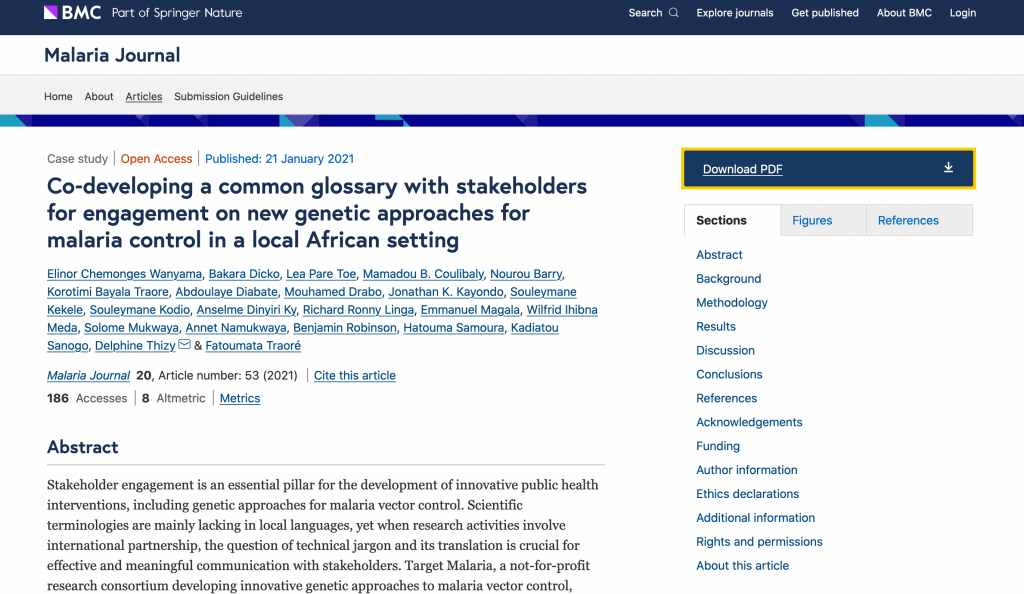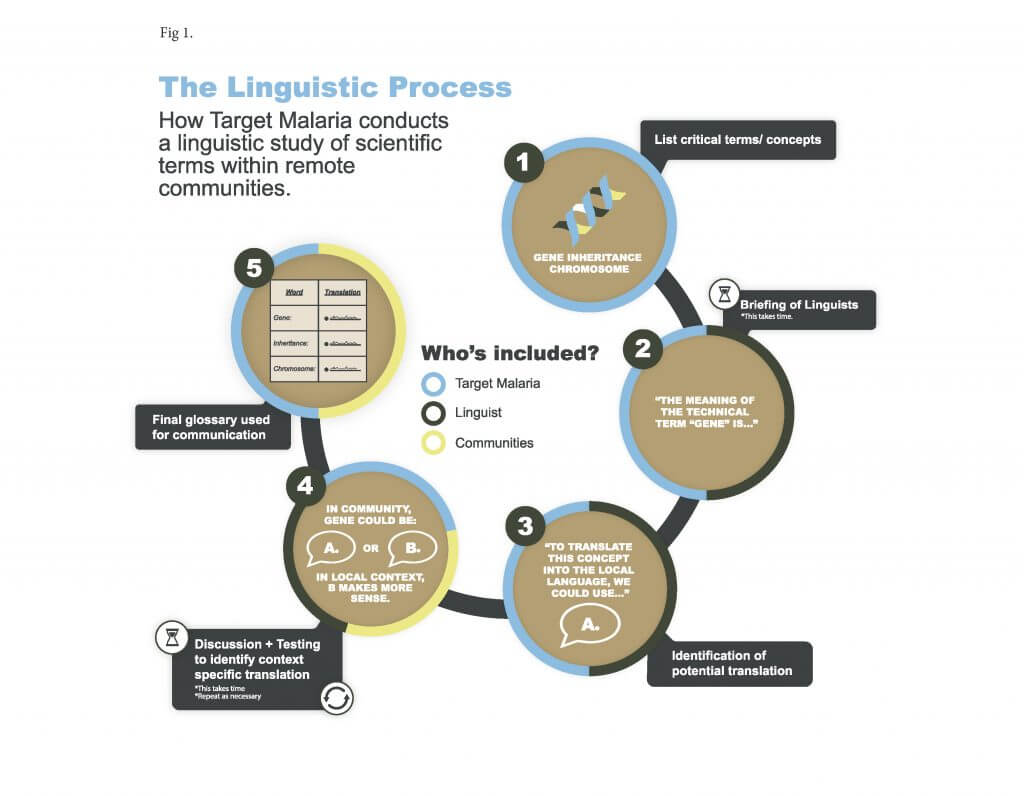Co-Developing a common glossary with stakeholders

Target Malaria’s commitment to a co-development approach means that participating communities’ views, concerns and expectations are taken into account for all project activities. Because the project works across different countries and cultures, establishing a meaningful dialogue with stakeholders can sometimes mean overcoming linguistic challenges, such as those posed by appropriately translating the scientific terminology employed by gene drive research in the field. A new paper, co-authored by project members and available on BMC’s Malaria Journal, details how teams at Target Malaria successfully overcame such linguistic difficulties by co-developing a series of local-language glossaries with communities living near field sites in Mali, Burkina Faso and Uganda.

After realising that the local languages spoken by these communities were lacking agreed-on translations of crucial terms for explaining the project, such as “gene drives”, “gene editing” or “entomology”, local teams set up a linguistic exercise to define their appropriate translation. In keeping with Target Malaria’s principle of co-development the opportunity of this process was taken to empower communities to take part in the dialogue on innovative vector control.
Firstly, the project worked with linguists from other institutions (both public research and private language centres) to develop a potential glossary in the local language with which to explain the project’s scientific approach. Then, this initial glossary was tested in focus groups with community members, who were able to give their opinions, criticisms and feedback regarding the choices made.

This process significantly improved the proposed translations by making them more appropriate to the local context and cultural understanding. The final step was to train other team members on these terms to ensure consistency throughout the project team. This was done with field entomology, insectary and other members of the teams as well as local volunteers who help with mosquito collection.
The glossaries ultimately enabled the project to create consistency in communication relating to scientific terminology, to improve stakeholder understanding of the project activities and to ensure that any eventual consent (at individual level) and agreement (at community level) are effectively informed.
Since their development, the team at Ghana University has also started a similar process, building on lessons learned from the experience analysed in the paper. The teams are also starting to explore the potential need for replicating this approach for other languages present in the areas where they operate.
Whilst these glossaries represent in-and-of themselves a valuable resource, the process through which they were created also highlights good practices relevant to projects working on innovative public health interventions where a similar exercise may be required. Target Malaria’s successful endeavour demonstrates the strength of a co-development approach with communities as a way to develop knowledge together and to establish a meaningful dialogue with stakeholders.
